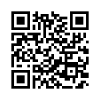PEMBELAJARAN KETERAMPILAN BERBAHASA PRODUKTIF BERBASIS COOPERATIVE LEARNING: SEBUAH EKSPERIMEN MODEL PEMBELAJARAN BRAIN DAN INVESTIGASI KELOMPOK
Downloads
(Title: Learning Productive Language Skills Based on Cooperative Learning: An
Experiment of Brain Learning Models and Group Investigation). Course learning outcome (CPMK) provides clear direction for the learning process. In addition, it provides a real picture of actions and teaching and learning behavior for university students and lecturers. The learning processes and events that are interesting, fun, innovative, and creative will have a positive effect on the achievement of learning objectives. The statement indirectly requires lecturers to design and implement interesting learning models. The facts show that there are many learning models applied by lecturers that are not in accordance with the specified learning outcomes. The learning achievement of productive language skills (KBP) requires university students to be able to produce scientific papers published in the form of academic seminars. This demand has implications for the teacher's obligation to prepare an interesting, effective, and fun learning model. The purpose of this study was to determine the effect of the BRAIN learning model on Productive Language Skills. This research was conducted at the Nusantara PGRI Kediri University in the odd semester of the 2019/2020 academic year with a sample of 62 students. The group was divided into 2 namely experiment and control. The experimental group used the BRAIN model and the control class used the Group Investigation model. The results showed that there were differences in the average language skills of students between the experimental class and the control class. If viewed from the KBP, the experimental class has an average value of 65.29 which is better than the control class of 63.88.
Keywords: Brain Model, Group Investigation Model, Productive Language Skill
Downloads
Aji, H. A. P. (2020). Membuat Siswa Lebih Produktif dalam Berbahasa Accountable Talk. Jurnal Al-Azhar Indonesia Seri Humaniora, 5(3), 168-174.
Asyari, M., Al Muhdhar, M. H. I., & Susilo, H. (2016). Improving Critical Thinking Skills Through The Integration of Problem Based Learning and Group Investigation. International Journal for Lesson and Learning Studies.
Ayuningrum, S. (2017). Peningkatan Hasil Belajar Bahasa Indonesia pada Aspek Keterampilan Berbahasa melalui Model Pembelajaran Kreatif Produktif di SMK Islam PB. Soedirman 1. Visipena Journal, 8(2), 351-372.
Joyce, B. Dan Weil, M. 2009. Models of Teaching. New Jersey: Prentice-Hall, Inc.
Kurniawan, K. (2016). Strategi Pembelajaran Bahasa Indonesia Berdasarkan Pendekatan Komunikatif. Jurnal Ilmu Pendidikan, 9(4).
Machin, A. (2014). Implementasi Pendekatan Saintifik, Penanaman Karakter dan Konservasi pada Pembelajaran Materi Pertumbuhan. Jurnal Pendidikan IPA Indonesia, 3(1).
Masitoh, S. (2016). Peningkatan Aktivitas Belajar dengan Pembelajaran Investigasi Kelompok dalam Kuliah Metode Penelitian PLB II. Jurnal Ilmu Pendidikan, 13(2).
Nazihah, W. (2020). Relevansi Faktor Psikolinguistik dengan Keterampilan Berbicara pada Pembelajaran Keterampilan Berbahasa Produktif. Logat: Jurnal Bahasa Indonesia dan Pembelajaran, 7(1), 67-84.
Nurhayati, I. (2016). Implikasi Budaya Sekolah terhadap Perikehidupan Akademis. Edukasia: Jurnal Penelitian Pendidikan Islam, 11(1).
Peraturan Pemerintah Republik Indonesia Nomor 19 Tahun 2005 tentang Standar Nasional Pendidikan.
Sangadji, S. (2016). Implementation of Cooperative Learning with Group Investigation Model to Improve learning Achievement of Vocational School Students in Indonesia. International Journal of Learning & Development, 6(1), 91-103.
Sidik, D. (2019). Pendidikan Era 21 dan Adopsi Model Pembelajaran (Kajian pada Pembelajaran Pendidikan Teknik Elektronika). Jurnal MEKOM (Media Komunikasi Pendidikan Kejuruan), 6(2).
Suyanta. (2014). Paradigma Baru dalam Pembelajaran di Perguruan Tinggi. Yogyakarta: FMIPA Universitas Negeri Yogyakarta.
Trianto. (2010). Mendesain Model Pembelajaran Inovatif – Progresif. Jakarta: Kencana.
Undang-Undang Republik Indonesia Nomor 12 Tahun 2012 tentang Pendidikan Tinggi.
Usman, A. S. (2014). Meningkatan Mutu Pendidikan melalui Penerapan Manajemen Berbasis Sekolah. Jurnal Ilmiah Didaktika: Media Ilmiah Pendidikan dan Pengajaran, 15(1), 13-31.
Wicaksono, G. W. (2018). Lective: Desain Perangkat Pembelajaran Online. In Prosiding SENTRA (Seminar Teknologi dan Rekayasa) (No. 1).
Yusantika, F. D., Suyitno, I., & Furaidah, F. (2018). Pengaruh Media Audio dan Audio Visual terhadap Kemampuan Menyimak Siswa Kelas IV. Jurnal Pendidikan: Teori, Penelitian, dan Pengembangan, 3(2), 251-258.
The authors who publish this journal agree to the following requirements. The author retains the copyright regarding the work being simultaneously licensed below Creative Commons Attribution ShareAlike License.

Jurnal Diksi by Faculty of Languages, Arts, and Culture, Universitas Negeri Yogyakarta is licensed under a Creative Commons Attribution-ShareAlike 4.0 International License.
Based on a work at http://journal.uny.ac.id/index.php/diksi




















